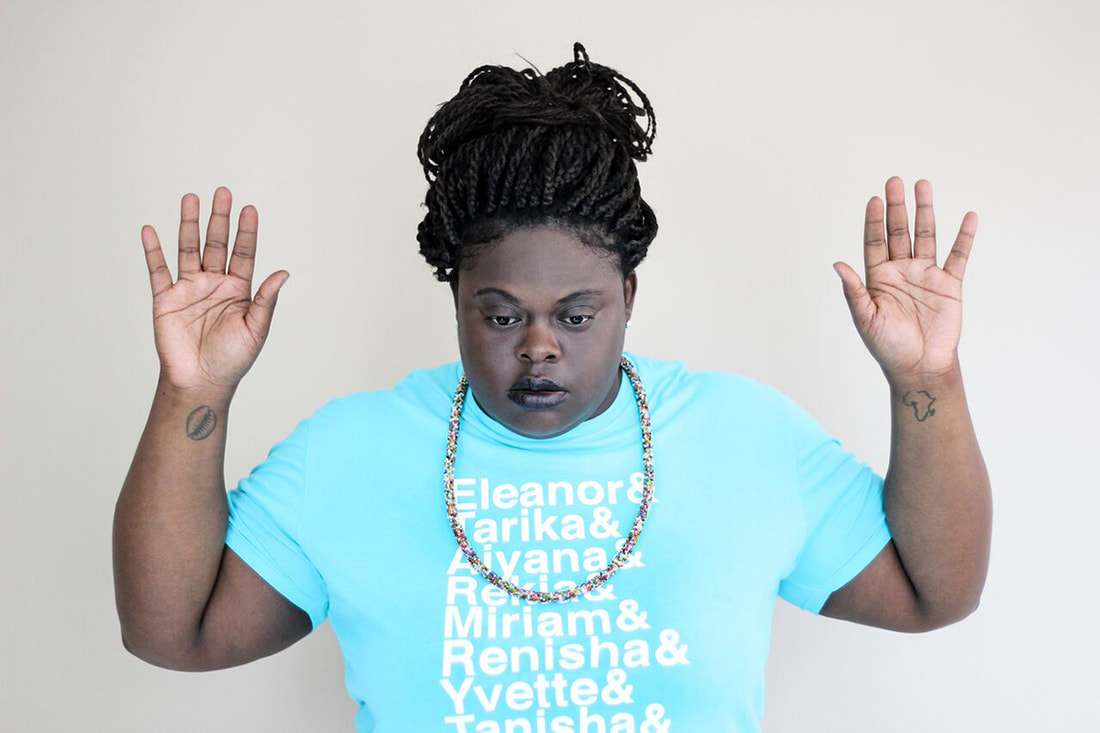 Porsha O is a Chicago born and bred poet who uses spoken word not only as a form of art and self-expression, but also as a platform to spread awareness for social justice. While the content of most spoken word pieces revolves around identity and intersecting issues of race, class, and gender, Porsha takes these intersecting identities to another level of critical thought “by applying advanced political analysis to examine injustice while providing perspective on concrete solutions” (STRENGTH OF DOVES). Porsha uses her own identities and struggles as word fire that ignites a revolution of critical pedagogy within spoken word performance. As per her Facebook biography, she is “black, poet, dyke-god, hip-hop feminist, womanist, friend ….. performance artist who believes in pixie dust and second chances….. her intention is to speak, love, praise, and maintain a cypher that is undocumented, uncontrollable and just plain ole dope” (FACEBOOK). While Porsha was at the University of Illinois she wrote and performed but “never slammed.” It wasn’t until her move to Boston in 2010 that she began to venture into slam events. In the four years following her move, Porsha made her name in the spoken word community. She became a regular at the Lizard Lounge and began participating in slam competitions. Her greatest awards are the 2014 Individual World Poetry Champion, the 2015 National Poetry Slam Champion, and the 2015 Rio II International Slam Finalist. Porsha currently resides in Boston where she organizes and advocates for social justice, writes, and teaches. Poems: |
ENGL4302 Spoken Word Poetry & Pedagogy at LSU ArchivesCategories
All
|
 RSS Feed
RSS Feed